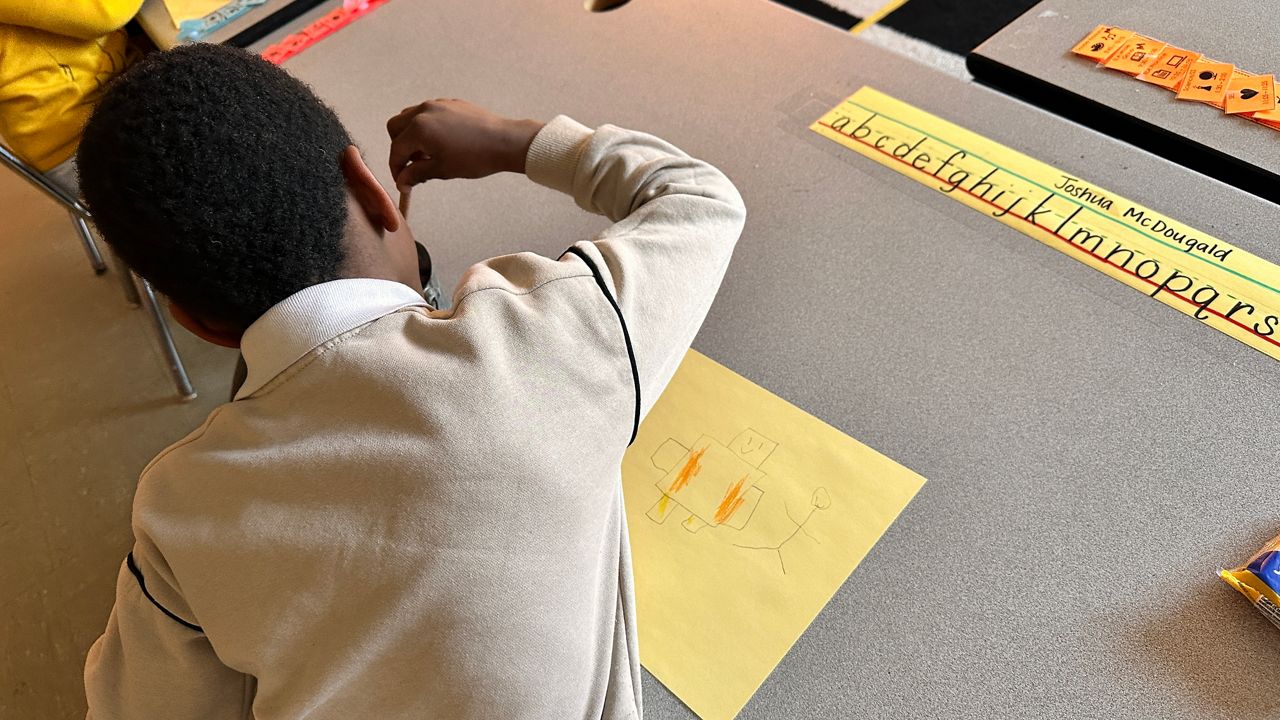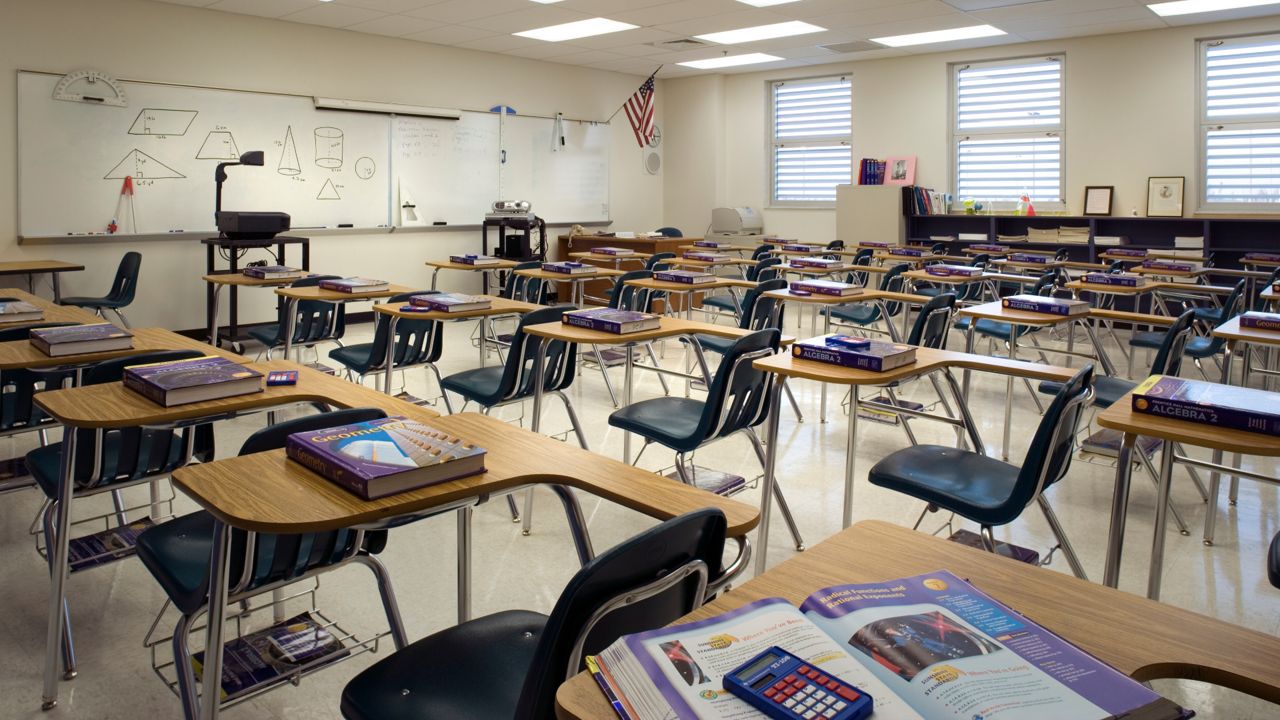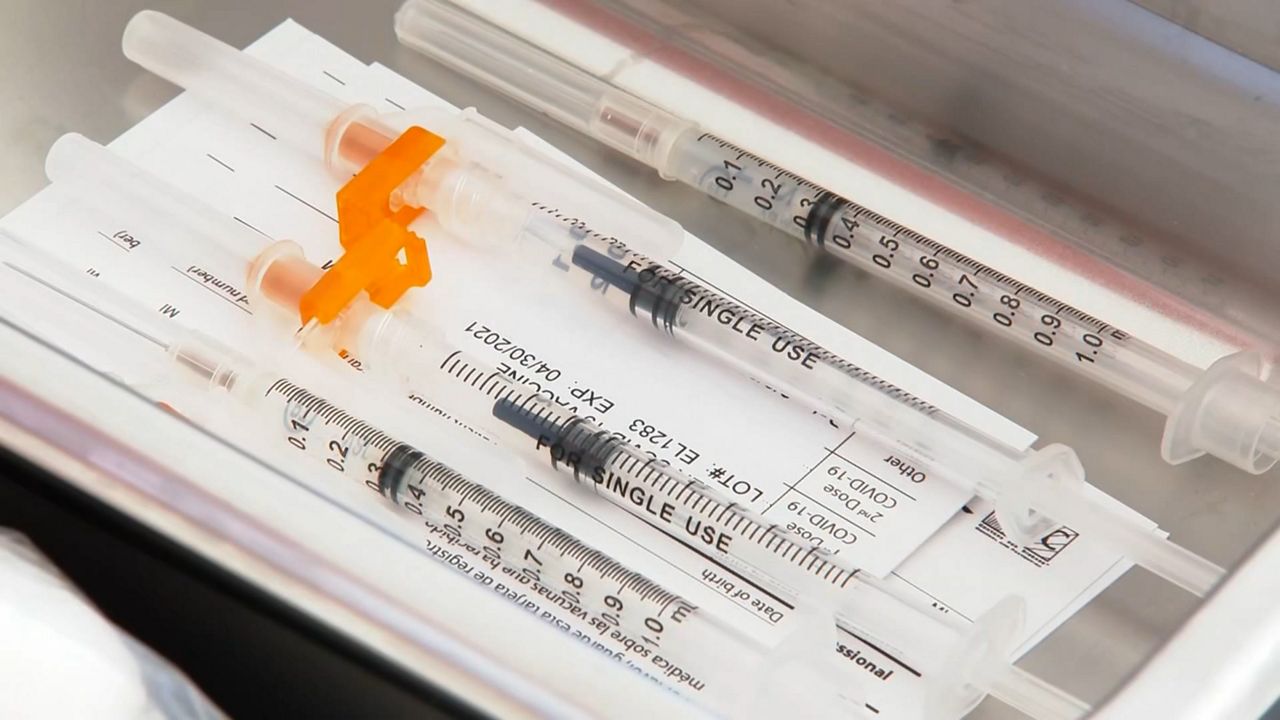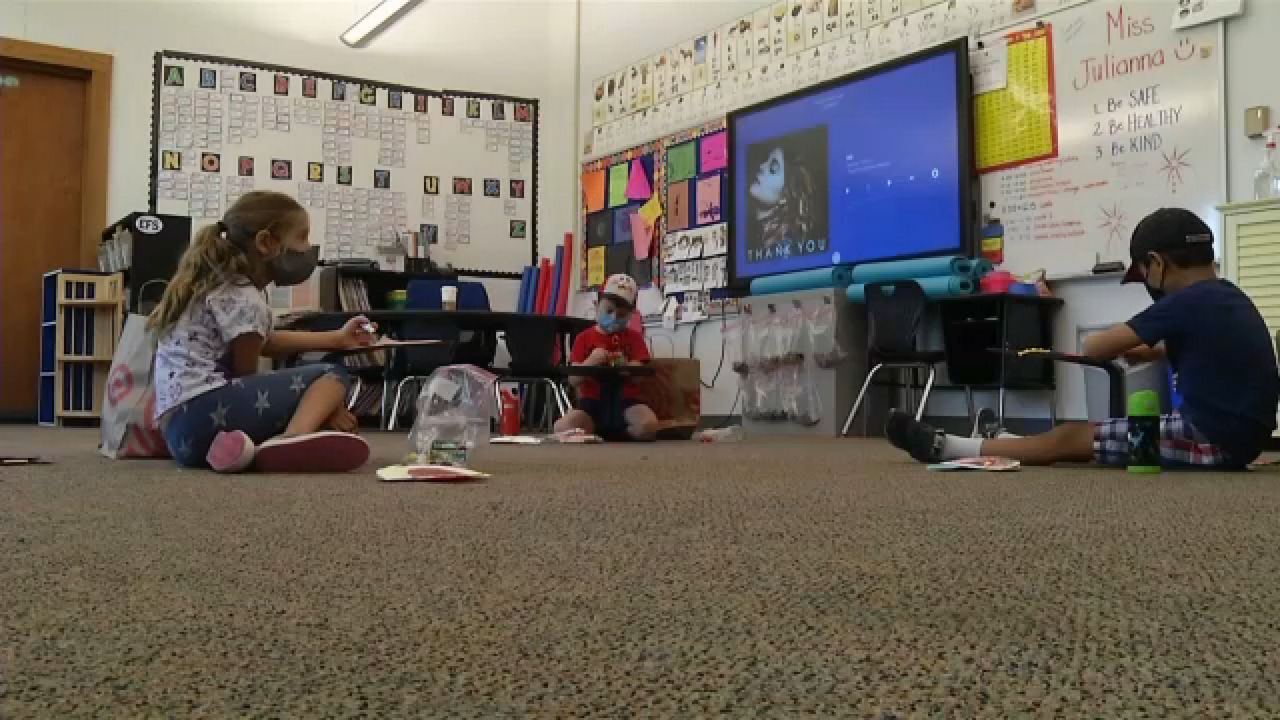CLEARWATER, Fla. — According to Bay Area child-care providers, young children are continuing to struggle emotionally because of the COVID-19 pandemic.
That’s why some teachers are learning tools to help their students cope. At Hope Academy International in Clearwater, they've invested in mental-health training for her teachers.
What You Need To Know
- Mental health of children affected by COVID
- Teachers need different methods to educate, care for students
- Schools like Hope Academy in Clearwater providing training for teachers
- Breathing techniques can help ease trauma for students and teachers
“We’re doing a lot more coping skills,” said Felicia Harris, owner of Hope Academy International Child Care. “A lot of breathing techniques. Just bringing our children back. Centering them to say ‘Okay, it’s okay, you’re okay. Let me help you.’ “
Madelyn, who is 5 years old and attends Hope Academy International, craves group hugs from her friends. But at the start of the pandemic, the hugs were few and far between, just one of the many changes the children endured. It affected Madelyn more than anyone first realized.
“Sometimes she would just shut down,” Harris said. “And that’s not her. This is a child, who would be voted Miss Personality at Hope Academy International. So to see her shut down, my first instinct is ‘Okay, Mom, what’s going on?’ ”
Turns out, Madelyn’s mother also lost her job because of the pandemic. Wearing the masks and being isolated from her friends was more than the 5-year-old could take.
“There’s a virus,” said her mother, Ashley Schroeder. “Well she’s 5. She doesn’t understand what that is. And so it was really hard. She went from coming home from school every day and going to the parks and playing with her friends to being locked in the house.”
At school, Harris noticed changes, not just in Madelyn, but in a lot of her children. They were becoming physical, resentful and distracted. So Harris began investing in mental-health training to help curb the new trauma from those impacted by the virus. Part of the training advises teachers to use a certain breathing technique, almost like blowing into a balloon.
“We really take for granted the art of breathing,” Harris said.
The mental-health training also is helpful for teachers
“It (COVID-19) has taken a toll on our team,” Harris said. “So those same learning techniques that we’re learning to instill in our children, we are definitely incorporating those skills within our own selves.”
The virus has called for a new emotional blueprint in early-childhood care and education. Federal dollars have been directed toward helping those in child care who have been mentally impacted by the pandemic.
Providers like Harris said working with the children’s emotional needs is critical to their future success. And for that help, Madelyn’s mother is thankful.





